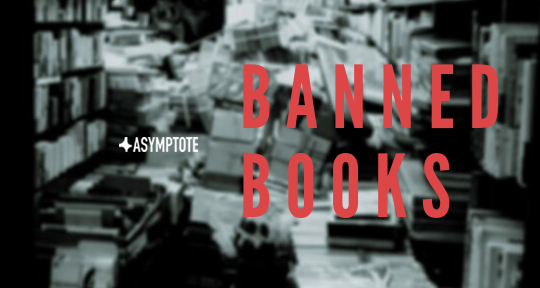In this week’s round-up of literary news, our editors report on losses, scandals, shortlists, and banned books. While Egypt mourns the loss of one its most gifted storytellers, the Katara Prize’s shortlist announcement has also given the nation’s writers something to be proud of. Meanwhile, Bulgarian PEN and Swedish PEN are respectively dealing with separate issues surrounding the dissemination of sensitive literature. Read on to find out more!
Ibrahim Sayed Fawzy Elsayed, Editor-at-Large, reporting from Egypt
The 9th edition of the Katara Prize for Arabic Novels has unveiled an eclectic shortlist, featuring nine captivating titles hailing from Egypt, Lebanon, Kuwait, Oman, Syria, and Palestine. Egypt topped the shortlist with three outstanding titles: The Secret Society of Citizens by the best-selling novelist Ashraf El-Ashmawi (Al-Dar Al-Masriah Al-Lubnaniah, 2022), You Shine, You Light Up by Rasha Adly (Dar El-Shorouk, 2022), and The Signs of a Lover by Mohamed Mowafi (Dar El-Ain Publishing, 2022). These Egyptian novels employ a unique lens on history to dissect pressing socio-political issues within Egyptian society.
Additionally, there’s one more literary treasure on the horizon: recently, the prominent Egyptian publisher Dar El-Sharouq has posthumously released a final novel—one last Bedouin tale—by Hamdy Abu Golayyel (1967-2023), an author of Bedouin descent, celebrated for chronicling the lives of Egypt’s marginalized and working class. The novel is entitled My Mother’s Rooster; in his last interview on ArabLit, Abu Golayyel had said, “I’m currently working on a novel titled ديك أمي / My Mother’s Rooster. I first titled it as غيط أمي / My Mother’s Field. My mother used to raise chickens, and she had a rooster that was very dear to her. So I changed the title to My Mother’s Rooster.”
Abu Golayyel has left an indelible mark on Arabic literature. His literary journey began with the publication of a short-story collection, Swarms of Bees (1997), followed by Items Folded with Great Care (2000). His debut novel, Thieves in Retirement (tr. Marilyn Booth), hit shelves in 2002, while his second, Dog with No Tail (tr. Robin Moger, 2008), won the Naguib Mahfouz Medal. Notably, his 2018 novel, The Men Who Swallowed the Sun (tr. Humphrey Davies), earned him the prestigious 2022 Banipal Prize. READ MORE…





